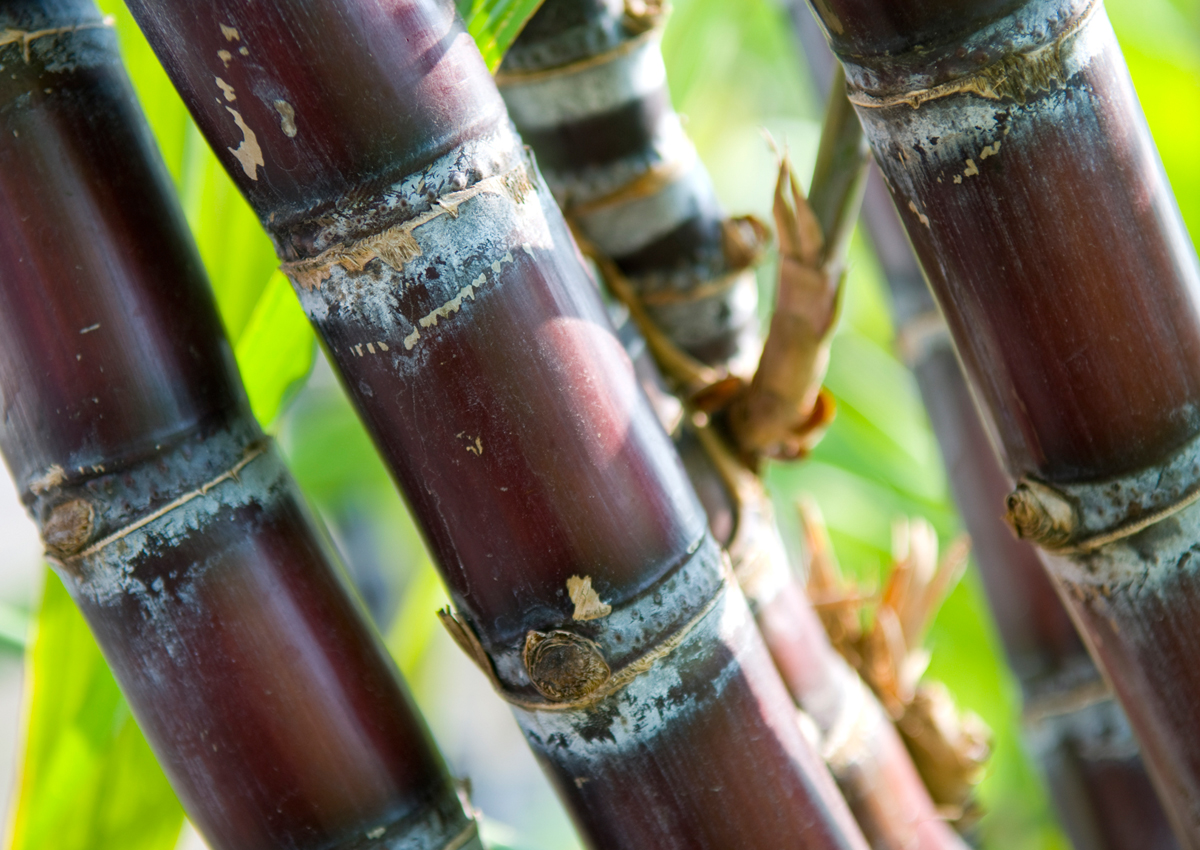
Bacteria that Kills Fungus Affecting Sugarcane Yields Discovered
April 13, 2022| |
A study conducted by scientists at the Brazilian Center for Research in Energy and Materials (CNPEM) has discovered that three strains of Pseudomonas bacteria can inhibit growth, and even cause the death, of the fungus responsible for pineapple sett rot, a disease that attacks sugarcane.
The three strains of Pseudomonas were found to inhibit in vitro up to 80% of the mycelial growth of Thielaviopsis ethacetica, the agent of pineapple sett rot, which is a fungus found in the soil and penetrates sugarcane stalks through cuts or wounds. The disease reduces budding and hence yields by as much as 50%.
Pineapple sett rot affects several tropical crops but has a significant impact on sugarcane yields in Brazil. The fungus prevents cuttings from germinating or developing completely. As the fungus reproduces inside the plant, the stem fibers redden, gradually darkening and becoming covered with spores. The fermentation triggered by the pathogen releases a pineapple-like odor. The disease has become more prevalent in recent years and is now most frequent in canefields.
The research team screened bacteria from different kinds of soil and roots in CNPEM's Brazilian Biorenewables National Laboratory (LNBR)'s microorganism collection. They selected 70 bacteria belonging to several genera and from different parts of Brazil. The three strains of Pseudomonas identified as most effective were confirmed by genetic sequencing. The team is now working to discover the species to which the strains belong.
For more details, download the paper published in Environmental Microbiology.
| |
You might also like:
- Sugar from GM Sugarcane at Par With That from Conventional Sugarcane
- Software Locates Sugarcane Genes of Interest
- Pocket K No. 45: Biotechnology for Sugarcane
Biotech Updates is a weekly newsletter of ISAAA, a not-for-profit organization. It is distributed for free to over 22,000 subscribers worldwide to inform them about the key developments in biosciences, especially in biotechnology. Your support will help us in our mission to feed the world with knowledge. You can help by donating as little as $10.
-
See more articles:
-
News from Around the World
- IPCC Report Reveals Agriculture can Halve Emissions by 2030; Help Climate Change Adaptation
- Trends on GM Foods Consumer Perception Help Identify Policy Recommendations
- ICRISAT Develops Iron-fortified Pearl Millet
- Nigeria Starts National Performance Trials for TELA Maize
- Genome Sequence of Forage Grass Now Available
- Brazil's Biotech Sugarcane Area to Double in 2022
- Shifting to Non-GM Feed Ingredients Less Beneficial to Environment, Producers and Consumers - Report
- Agri Experts Help Identify Behavioral Factors that Influence GM Tech Acceptance
-
Research Highlights
- Bacteria that Kills Fungus Affecting Sugarcane Yields Discovered
- Protein Discovery Reveals Mechanisms of Nitrogen Assimilation in Plants
- Researchers Reveal Genetic Basis of Watermelon Seed Size
-
Plant
- Novel Plant Breeding Techniques Boosts Cereal Production
-
Read the latest: - Biotech Updates (January 28, 2026)
- Gene Editing Supplement (January 28, 2026)
- Gene Drive Supplement (February 22, 2023)
-
Subscribe to BU: - Share
- Tweet

